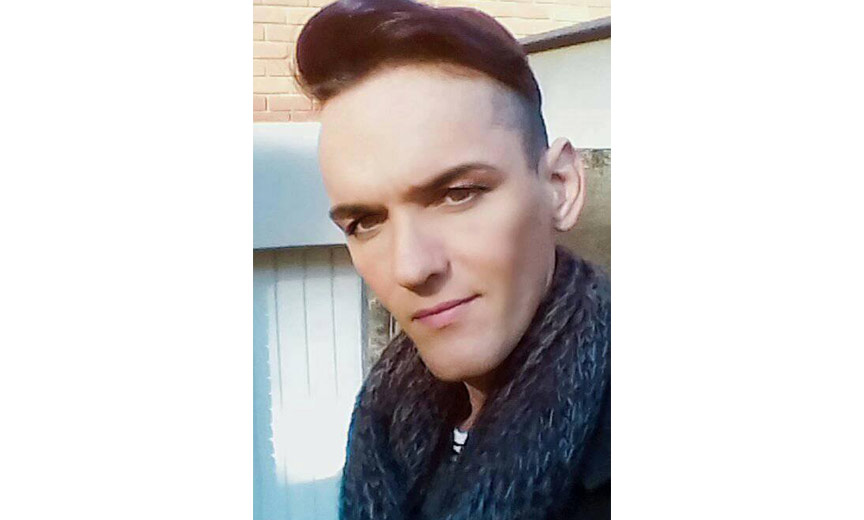If you have recently been diagnosed HIV positive you probably have a lot of questions just like I did when I first got the news. Why me? What now? Am I going to die? When will I start getting sick? What will my friends and family think?
All of these are valid questions and quite normal too. There is no easy answer to any of these questions as it all depends on you and how you decide to deal with it. But I am going to try and answer these questions for you as comprehensively as I can, based on my own experience, in the hope that it will shed some light on your own situation and help you move on with your life.
Why me?
HIV, just like any other illness, can strike at any time and can affect anyone regardless of race, cultural background, age or gender. It does not ask how much money you have or what your social standing is. It is not a picky illness and when you are susceptible to the virus through your own doing or someone else’s it will affect you either way. We are all human and sometimes we make mistakes. None of us are perfect and it is in our human nature to falter at some stage in our lives in one way or the other. Blaming yourself for what you have done wrong will not change your situation one bit and blaming someone else who might have done you wrong will not change the situation either. Life happens and it is how we deal with it that will ultimately make the difference. I was furious when I first discovered my status and for a very long time I held a grudge against the person who infected me. I could not look him in the eye without feeling an unhealthy amount of hatred towards him. But then one day I sat down with my counsellor and he explained to me that maybe this person was also going through exactly the same distress as I was. Maybe this person was also just a victim like I was. I never once took the time to confront him about it because I was just so angry that this had happened to me. After a lot of soul searching I took the time to contact him and to talk to him about how I felt and only then did I discover that he himself was infected by someone he trusted whole heartedly. At the time I got infected, he was totally unaware of his status as well. The anger inside me towards him started subsiding and after a while I managed to forgive him because I realised that no matter how much anger I held inside, it was NEVER going to change my status. I was positive and I was going to be positive for the rest of my life. This one undeniable fact was never ever going to change.
Find LGBTQ-Friendly ResourcesIt took some time, but in the end I managed to move on with my life and so did he. I am not saying that I will ever be able to forget what happened, but I have learned to live with the reality of it all and so will you. You need to accept that this very real thing has happened to you and no matter what you do it will never change. For your own sanity and for your own health it is better to accept it and move on with your life in a healthy and positive way.
What now?
The first thing you need to do after your initial diagnosis would be to get a second opinion, just to put your mind at ease. This helped me a lot because it gave me the affirmation I needed. I studied haematology and viral diseases so I knew that two positive results is a definite confirmation of infection. Then after this the next step will be to determine your CD4 count and viral load. Your CD4 count measures the number of blood cells in a cubic millimetre of blood. A good CD4 count is anything above 500. Your viral load measures the number of HIV virus particles in a millilitre of your blood. An undetectable viral load is normally anything between 40 -75 copies/ml. Once these levels are determined your doctor will be able to determine what treatment to put you on. It is very important to start medication as soon as possible. I decided to start immediately because I wanted
to make sure I get my levels right as soon as possible. The next thing you should do is to find a support group. It is extremely important to have someone to talk to. The very reality of depression in people with HIV is there and it is one of the main things that prevents us from dealing with this effectively. My saving grace was the fact that I had a few good close friends who were all positive and part of an excellent support group. We met once a month to just discuss how we were doing and to touch up on medical issues related to the illness. I also saw a counsellor once a week to help me cope with my depression and got my doctor to prescribe some mild antidepressant for me. This together with my ARV’s saved my life for sure.
Am I going to die?
The short answer is NO. You are not just going to keel over and die. There as so many advances related to HIV/AIDS treatment. In 1996 -1997 the life expectancy at the age of 20 for people living with HIV was around 20 years. By 2011, thanks to all the medical advances, that number has improved to 53 years. As you can clearly see, the advance is massive. The important thing here is to make sure that you take very good care of yourself. Take you medication religiously and try not to skip any dosage. Exercise regularly and always wear protection; should you be sexually active. Your life did not end when you got that diagnosis, it just got a little bit more complicated from a medical point of view. Surround yourself with good positive people who lift you up and who keep your mind- set positive. Make sure you get your CD4 and viral load tested every six months to monitor your progress and to change your meds if necessary. This will ensure you a long and happy life.
When will I start getting sick?
As long as you are on ARV’s and see your doctor on a regular basis, your CD4 should rise and your viral load should decrease. Doing your blood tests every six months will also give your doctor an indication of what the status of your health is and he/she will be able to adjust your medication accordingly. Keeping fit is very important and cutting out any bad health-related habits is also extremely important. Make sure your diet is sufficient and that you take very good care of yourself. If you do this, you will stay healthy for a very long time. A great number of people living with HIV never get sick. They live normal healthy lives and eventually they pass on just like anyone not infected by the virus.
What will my friends and family think and should I tell them?
Firstly, and I think most important of all is that you never have to disclose your status to anyone. The South African Constitution has a Bill of Rights that protects all people. The rights to life, dignity, privacy, freedom and others.
*“When it comes to healthcare, food, water and social security rights, in section 27, it says:
Everyone has the right to have access to:
- healthcare services, including reproductive healthcare;
- sufficient food and water; and
- social security, including, if they are unable to support themselves and their dependents, appropriate social assistance.
- the state must take reasonable legislative and other measures, within its available sources, to achieve the progressive realisation of each of these rights.
- no one may be refused emergency medical treatment.
The Constitution of South Africa protects the rights of people living with HIV. It doesn’t allow discrimination and protects people’s right to privacy and confidentiality. In South Africa, there aren’t
any laws that force people to tell others about their HIV status. People who do test positive should tell their partner, so that they can be protected and also have an HIV test. People with HIV or AIDS in South Africa are protected by the Bill of Rights and have the same rights which protect all citizens.
- There can be no discrimination against anyone who has HIV or AIDS
- They have the right to medical treatment and care from the health and welfare services
- Children with HIV are allowed to attend any school
- No one can be fired from a job just because they are HIV-positive
- No one can be forced to have an HIV test before getting a job or while at work
- Test results cannot be shown to anyone else without the permission of the person who had the test
- Pregnant women with HIV have the right to make a choice about their pregnancy”
* For more information please visit: aids.gov
The decision to tell your friends or family is entirely yours and you can do it once you feel comfortable, safe and confident that it is what you want to do. As far as disclosing your status to your employer, you are under no obligation to do so, unless the nature of your work requires you to do it.
The just of it all my friends is very simple. Your diagnosis is as real as life itself. It is not something that will change or go away, unless a much anticipated cure is found. Accepting it and choosing to live a happy and long life is completely up to you. You can and will have the same life you had before you were diagnosed. The only thing that has changed is a small little virus that now occupies your body. Taking care of your health is important for every single person whether they are positive or not, but it has now become imperative for you do make sure your do just that. Live life, continue to dream big and never give up on yourself. You are precious and the same world is still out there waiting to see you soar!
Want Metrosource LGBTQ content notifications? Sign up for MetroEspresso.
Last modified: February 14, 2019











